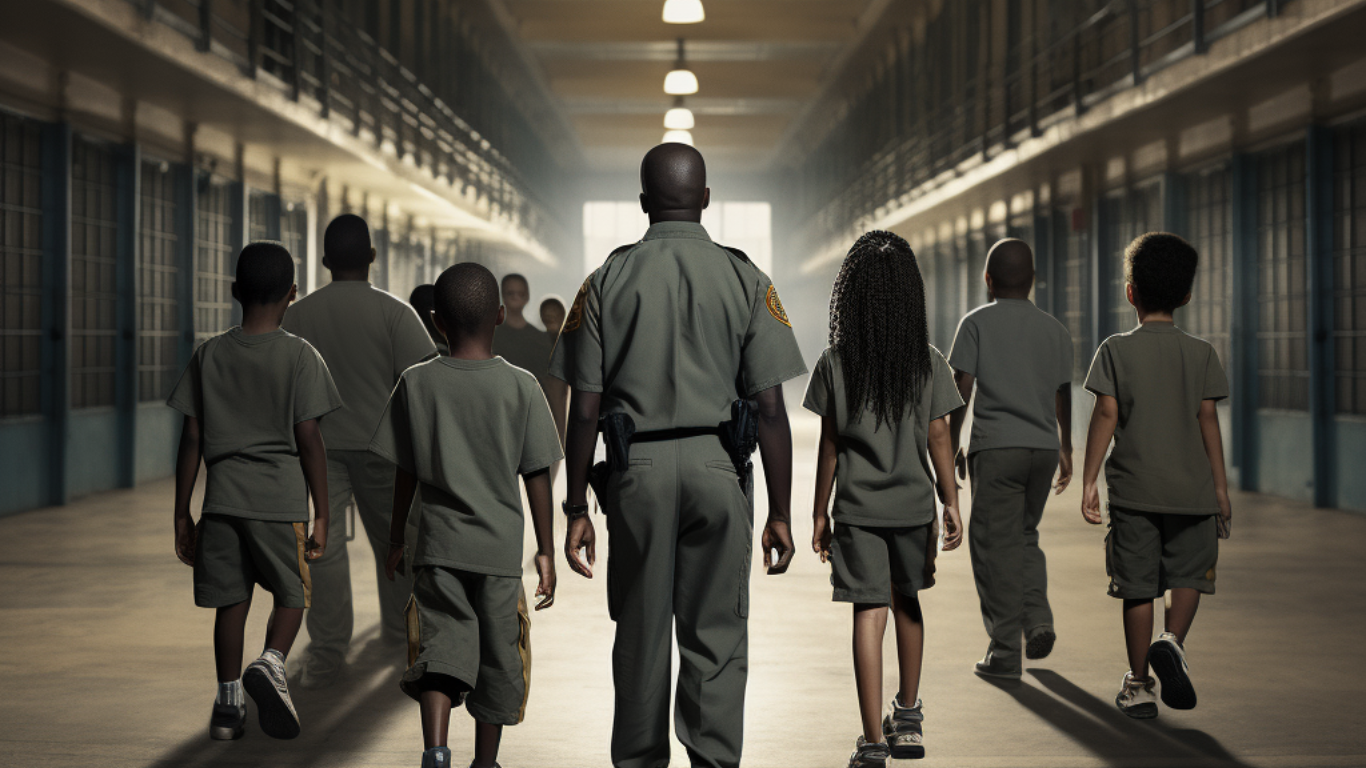
The School-to-Prison Pipeline (STPP) is an alarming societal issue that casts a long shadow over the educational and justice systems in the United States. This term illustrates the concerning pathway from schools to incarceration that disproportionately affects students from marginalized communities, particularly Black and Hispanic youth. Various factors intertwine to facilitate this pipeline, ranging from zero-tolerance school policies to systemic racial biases and inadequately resourced educational institutions. By dissecting the School-to-Prison Pipeline’s intricate web, we can better appreciate the dire need for initiatives like the Mama Mavericks course, a beacon of hope in fostering substantial change.
Unveiling the School-to-Prison Pipeline
The STPP isn’t a physical pipeline but a series of policies and practices that push students, particularly those from disadvantaged backgrounds, out of schools and into the juvenile and criminal justice systems. Here’s a deeper look into the elements fueling the STPP:
Zero-Tolerance Policies
Initially intended to combat drug abuse and violence in schools, zero-tolerance policies have morphed into a broad brush that paints minor infractions with severe disciplinary actions. These policies often result in suspensions and expulsions for minor misbehaviors, setting the stage for students’ disengagement from school and increasing the likelihood of interaction with the juvenile justice system.
Lack of Adequate Resources
Many schools in low-income communities are under-resourced, lacking access to experienced teachers, extracurricular programs, and counseling services. This inadequacy contributes to a hostile school environment where students are more likely to disengage and fall into the STPP.
Racial Disparities
Systemic racial biases play a significant role in the STPP. Studies reveal that students of color are disproportionately subjected to harsher disciplinary actions compared to their white counterparts, even when exhibiting similar behaviors.
School Resource Officers (SROs)
The presence of law enforcement officers in schools, known as School Resource Officers, often escalates situations that could otherwise be resolved through mediation or counseling. The criminalization of typical adolescent behavior contributes to a negative school climate, propelling students on a trajectory towards incarceration.
The Beacon of Change: Mama Mavericks
Amidst this grim reality, programs like Mama Mavericks arise as a glimmer of hope. Spearheaded by the passionate instructor, Lakischa Smith, Mama Mavericks: Unapologetic Motherhood is a transformative course tailored for mothers, especially of African American heritage, who are ready to embrace their unique power to foster meaningful change in their communities.
Through a blend of self-reflection, skill-building, and community engagement, Mama Mavericks empowers mothers to advocate fiercely for their children’s educational rights, challenging the systemic issues underpinning the STPP. By doing so, they not only contribute to dismantling this harmful pipeline but also pave the way for a more just and inclusive society.
Conclusion
The School-to-Prison Pipeline is a multi-faceted issue that demands collective action. Initiatives like Mama Mavericks provide a robust platform for mothers to engage, learn, and lead the charge towards a more equitable educational landscape, ultimately contributing to the dismantling of the School-to-Prison Pipeline.
References:
- ACLU (American Civil Liberties Union). (n.d.). What is the School-to-Prison Pipeline? [Web page]. Retrieved from ACLU Website
- Nellis, A. (2016). The Color of Justice: Racial and Ethnic Disparity in State Prisons. The Sentencing Project.
- Heitzeg, N. A. (2009). Education Or Incarceration: Zero Tolerance Policies And The School To Prison Pipeline. Forum on Public Policy Online, 2009(2).
- Advancement Project (Organization), & Harvard Law School. (2005). Education on lockdown: The schoolhouse to jailhouse track.
By delving deeper into the complexities of the School-to-Prison Pipeline and shining a light on the solutions offered through Mama Mavericks, we aim to spark a discourse that will lead to actionable change, carving a brighter future for our children and society at large.
With Love, Lakischa Smith
Meet Lakischa Smith, a proud mother and a dedicated public health advocate. With a Bachelor’s from Dillard University and a Master’s in Public Health from Florida International University, she’s committed to sharing honest narratives about black motherhood. Lakischa believes in fostering sisterhood to combat the pervasive forces of white supremacy, and empowering African American women to be agents of change for future generations. She asserts that recognizing and addressing our community’s struggles is crucial, for healing is the key to moving forward. Armed with the power of education and a deep belief in collective action, Lakischa is determined to ensure that the issues impacting African American parenthood aren’t just seen—they’re addressed and resolved.

